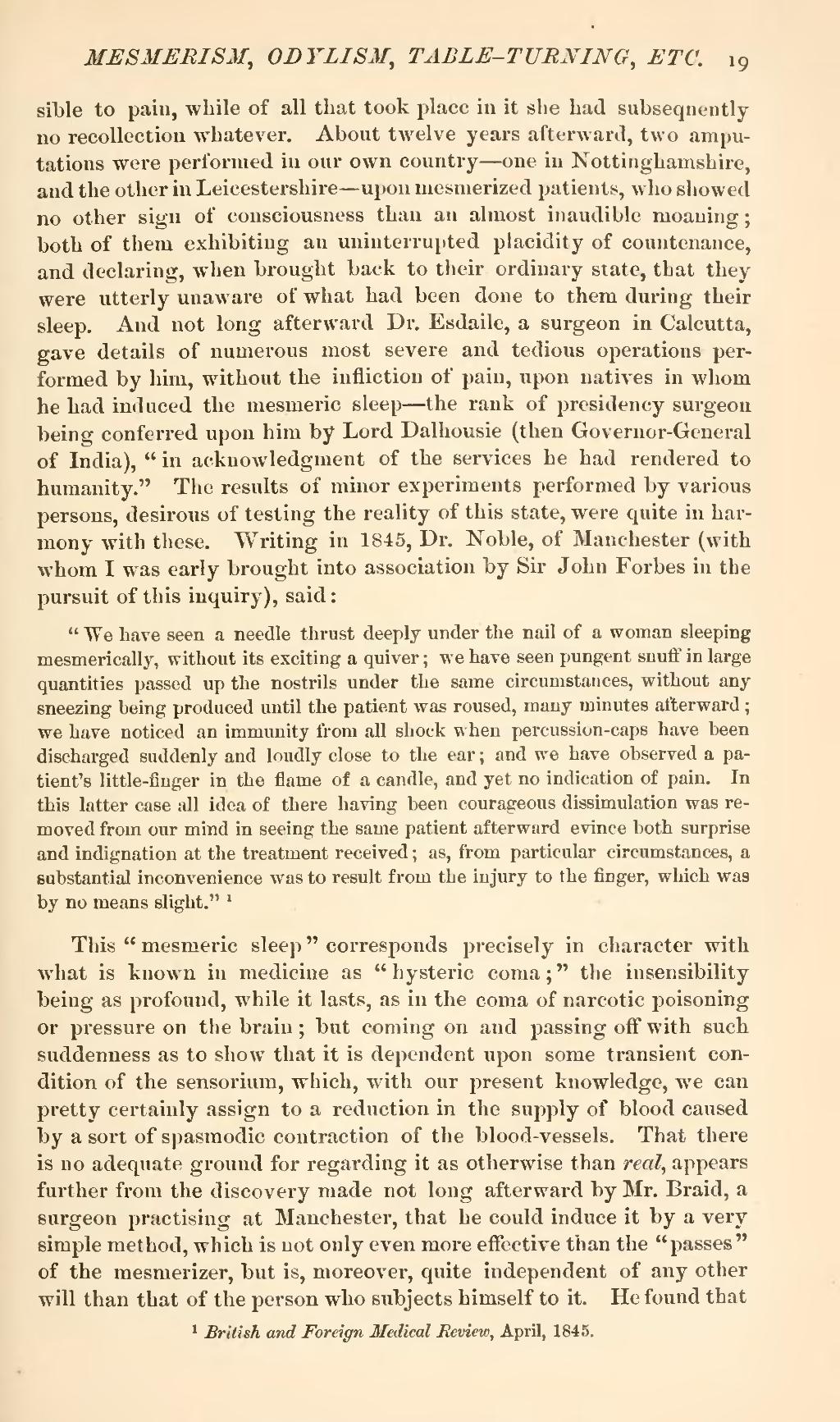sible to pain, while of all that took place in it she had subsequently no recollection whatever. About twelve years afterward, two amputations were performed in our own country—one in Nottinghamshire, and the other in Leicestershire—upon mesmerized patients, who showed no other sign of consciousness than an almost inaudible moaning; both of them exhibiting an uninterrupted placidity of countenance, and declaring, when brought back to their ordinary state, that they were utterly unaware of what had been done to them during their sleep. And not long afterward Dr. Esdaile, a surgeon in Calcutta, gave details of numerous most severe and tedious operations performed by him, without the infliction of pain, upon natives in whom he had induced the mesmeric sleep—the rank of presidency surgeon being conferred upon him by Lord Dalhousie (then Governor-General of India), "in acknowledgment of the services he had rendered to humanity." The results of minor experiments performed by various persons, desirous of testing the reality of this state, were quite in harmony with these. Writing in 1845, Dr. Noble, of Manchester (with whom I was early brought into association by Sir John Forbes in the pursuit of this inquiry), said:
"We have seen a needle thrust deeply under the nail of a woman sleeping mesmerically, without its exciting a quiver; we have seen pungent snuff in large quantities passed up the nostrils under the same circumstances, without any sneezing being produced until the patient was roused, many minutes afterward; we have noticed an immunity from all shock when percussion-caps have been discharged suddenly and loudly close to the ear; and we have observed a patient's little-finger in the flame of a candle, and yet no indication of pain. In this latter case all idea of there having been courageous dissimulation was removed from our mind in seeing the same patient afterward evince both surprise and indignation at the treatment received; as, from particular circumstances, a substantial inconvenience was to result from the injury to the finger, which was by no means slight."[1]
This "mesmeric sleep" corresponds precisely in character with what is known in medicine as "hysteric coma;" the insensibility being as profound, while it lasts, as in the coma of narcotic poisoning or pressure on the brain; but coming on and passing off with such suddenness as to show that it is dependent upon some transient condition of the sensorium, which, with our present knowledge, we can pretty certainly assign to a reduction in the supply of blood caused by a sort of spasmodic contraction of the blood-vessels. That there is no adequate ground for regarding it as otherwise than real, appears further from the discovery made not long afterward by Mr. Braid, a surgeon practising at Manchester, that he could induce it by a very simple method, which is not only even more effective than the "passes" of the mesmerizer, but is, moreover, quite independent of any other will than that of the person who subjects himself to it. He found that
- ↑ British and Foreign Medical Review, April, 1845.
